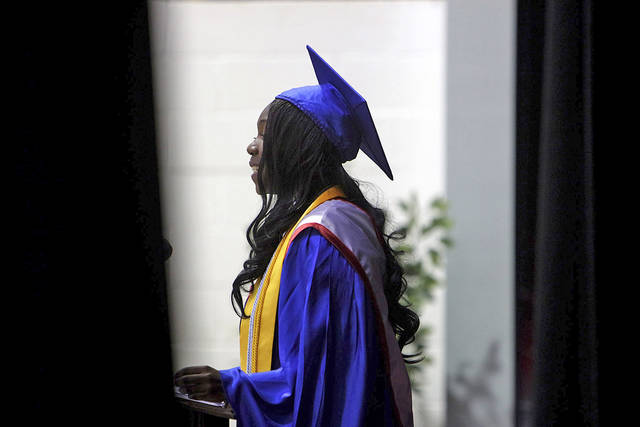LANCASTER, N.Y — At many American high schools, the graduation-day tradition of crowning a valedictorian is becoming a thing of the past. ADVERTISING LANCASTER, N.Y — At many American high schools, the graduation-day tradition of crowning a valedictorian is becoming
LANCASTER, N.Y — At many American high schools, the graduation-day tradition of crowning a valedictorian is becoming a thing of the past.
The ranking of students from No. 1 on down, based on grade-point averages, has been fading steadily for about the past decade. In its place are honors that recognize everyone who scores at a certain threshold — using Latin honors, for example. This year, one school in Tennessee had 48 valedictorians.
About half of schools no longer report class rank, according to the National Association of Secondary School Principals. Administrators worry about the college prospects of students separated by large differences in class rank despite small differences in their GPAs, and view rankings as obsolete in an era of high expectations for every student, association spokesman Bob Farrace said. There are also concerns about intense, potentially unhealthy competition and students letting worries about rank drive their course selections.
Among those weighing a change is Lancaster High School in suburban Buffalo, where students are leading an exploration of replacing valedictorian-salutatorian recognitions with the college-style Latin honors of summa cum laude, magna cum laude and cum laude.
The principal, Cesar Marchioli, said he’s neutral on the issue, though he feels for the 11th-ranked student who falls just short of the recognition awarded to the top 10 seniors honored at the annual banquet.
Graduating Lancaster senior Connor Carrow, 17, has pressed for the switch to Latin honors since his sophomore year, well before landing just out of the top 10, at No. 14, while serving as student union president and playing varsity lacrosse and hockey. He said it’s a better fit with the school’s collaborative and cooperative ideals.
“You’re striving for that (honor) personally, but you’re not hoping that you’re better than these other 400 people next to you,” said Carrow.




